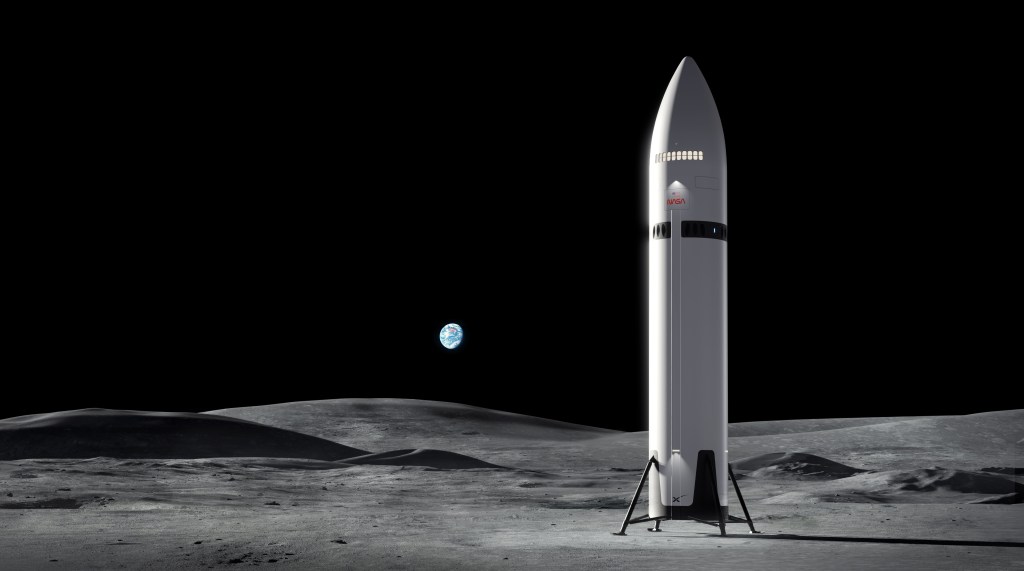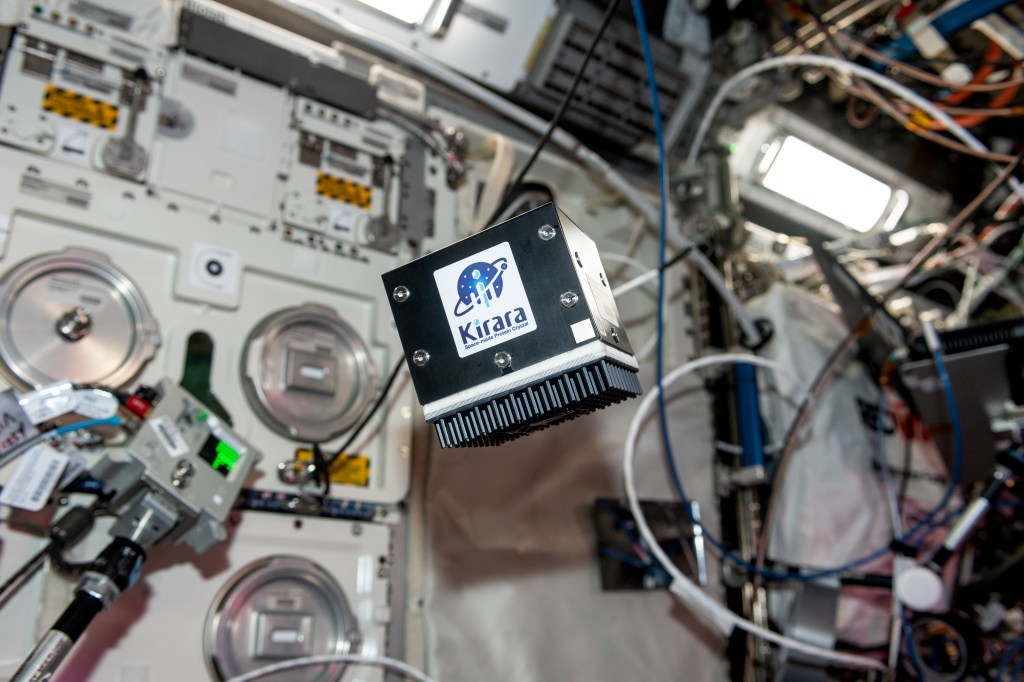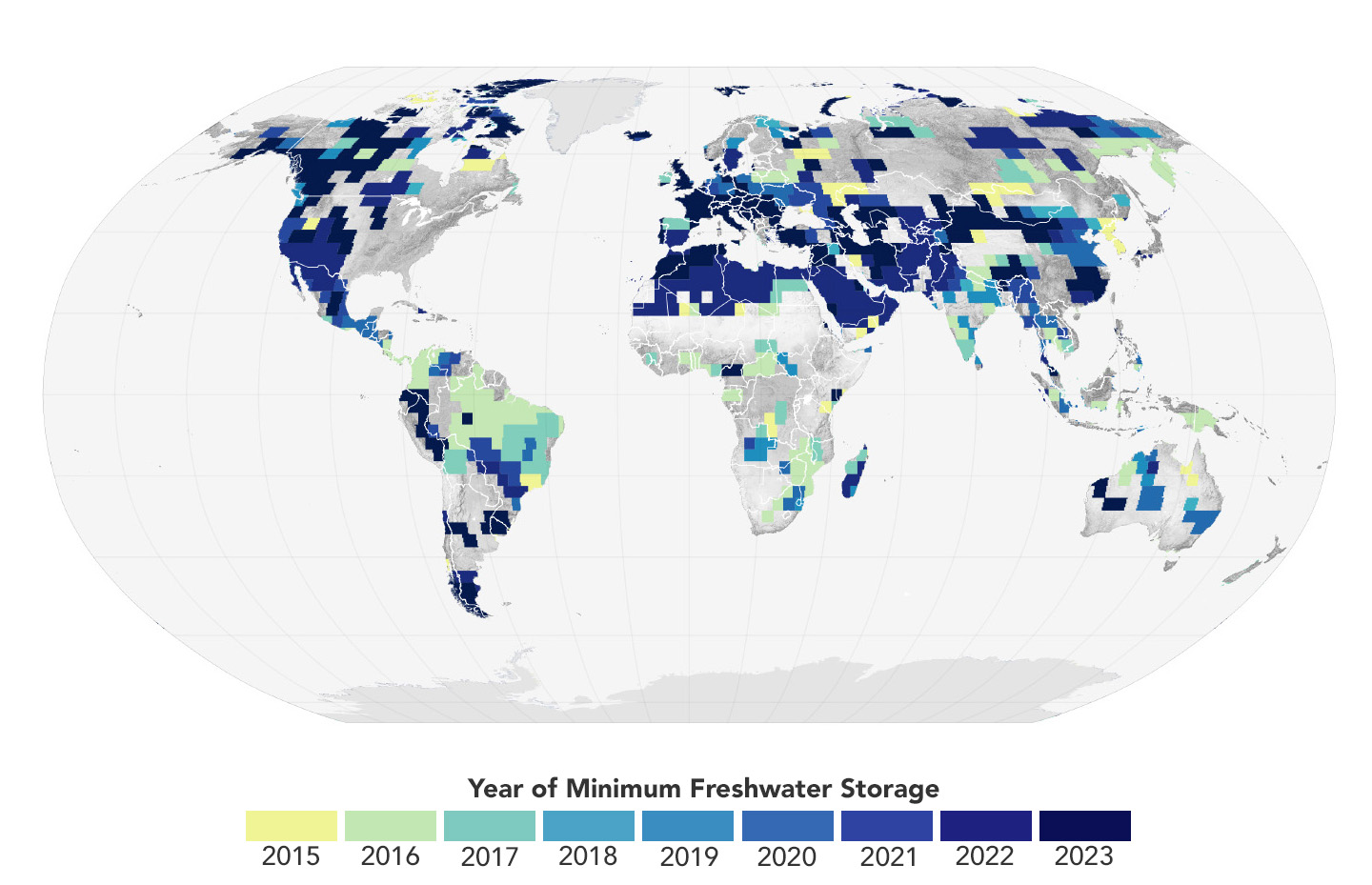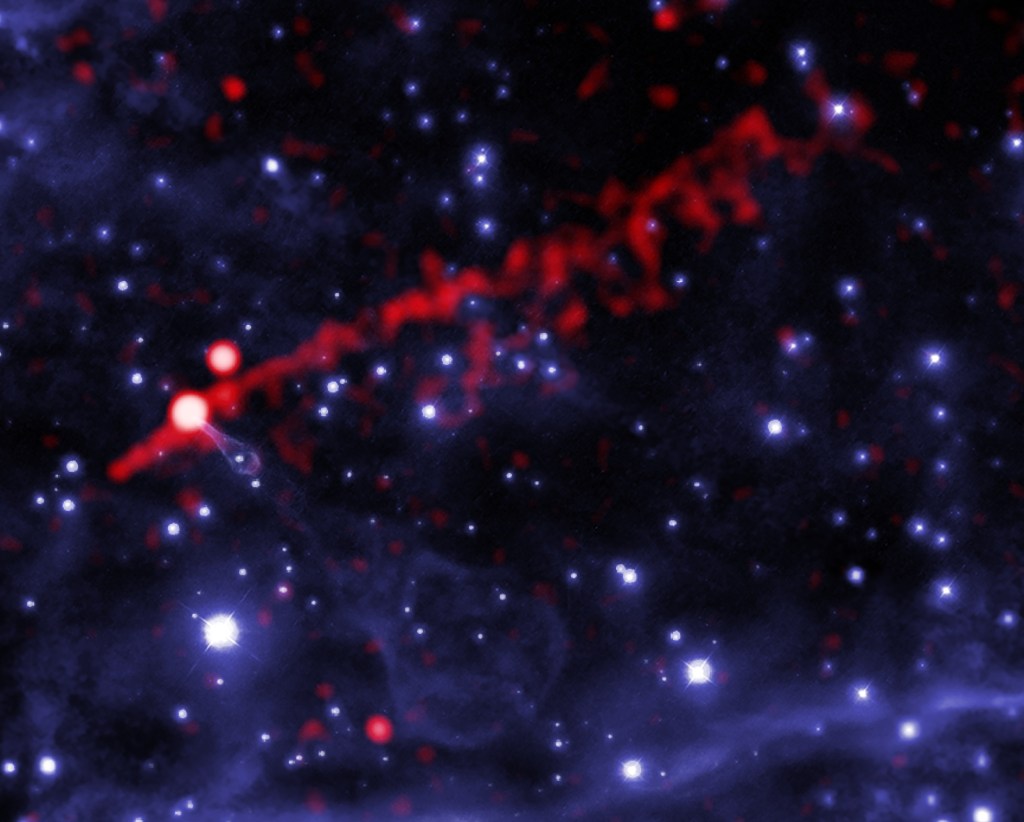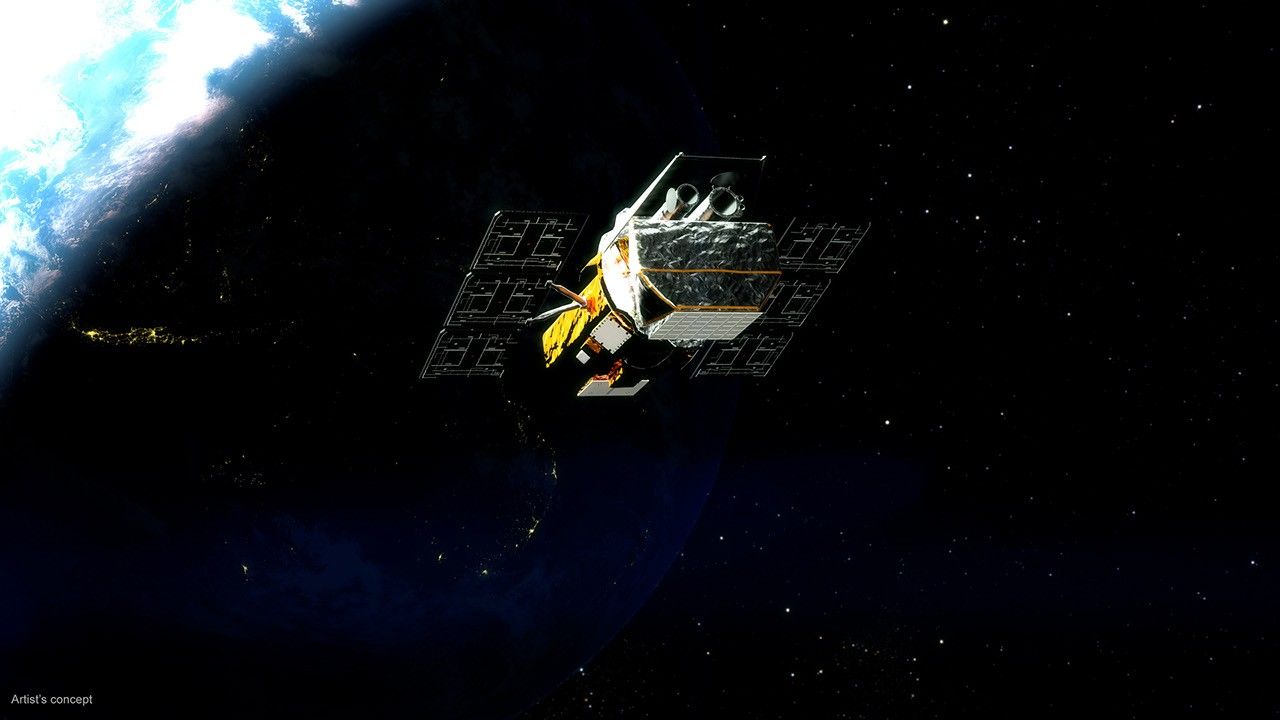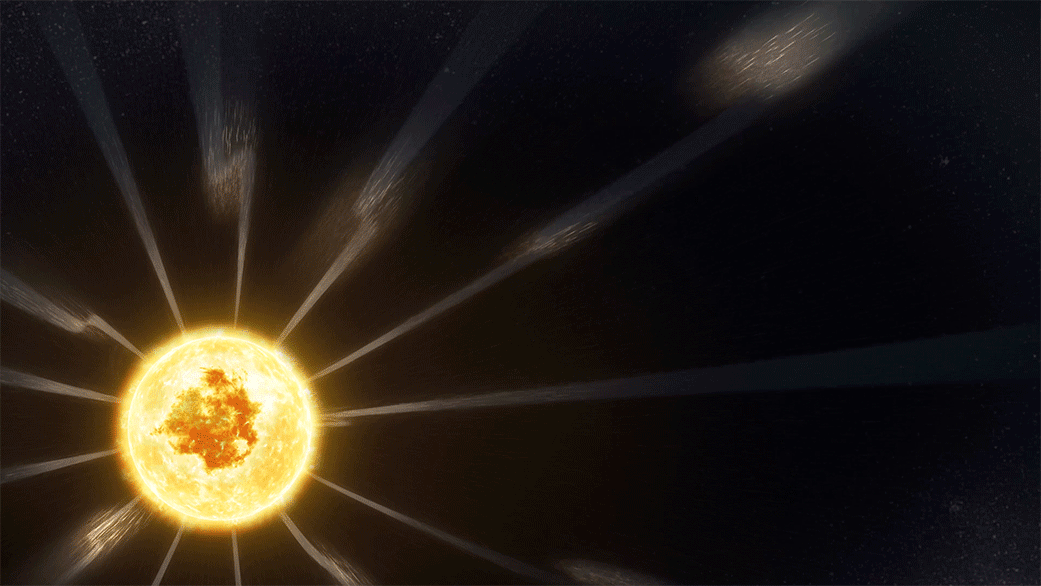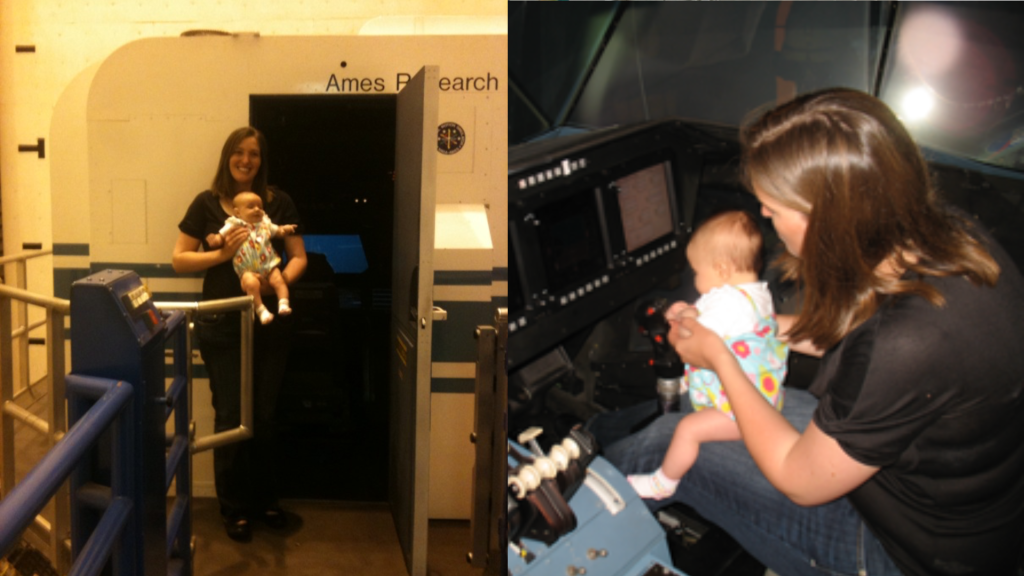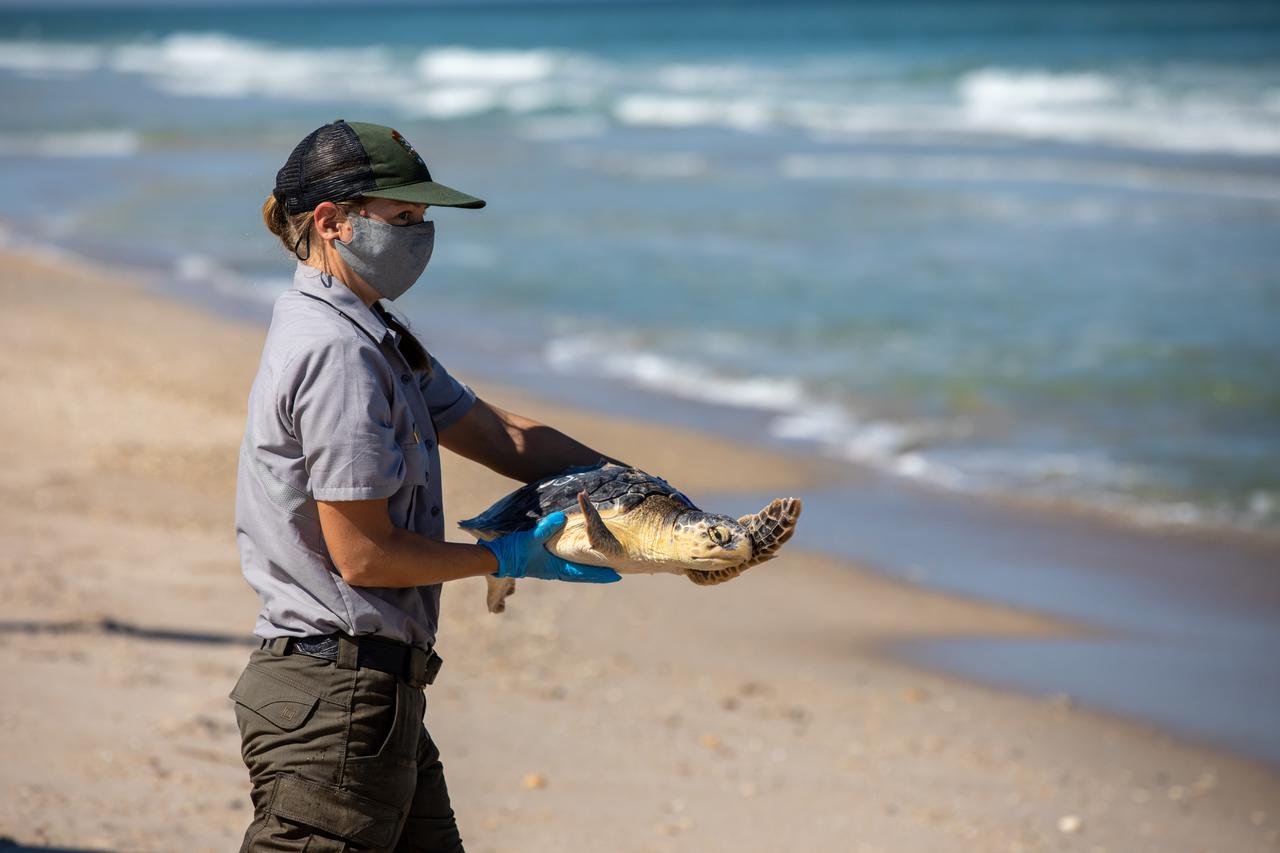
By Linda Herridge
NASA’s John F. Kennedy Space Center
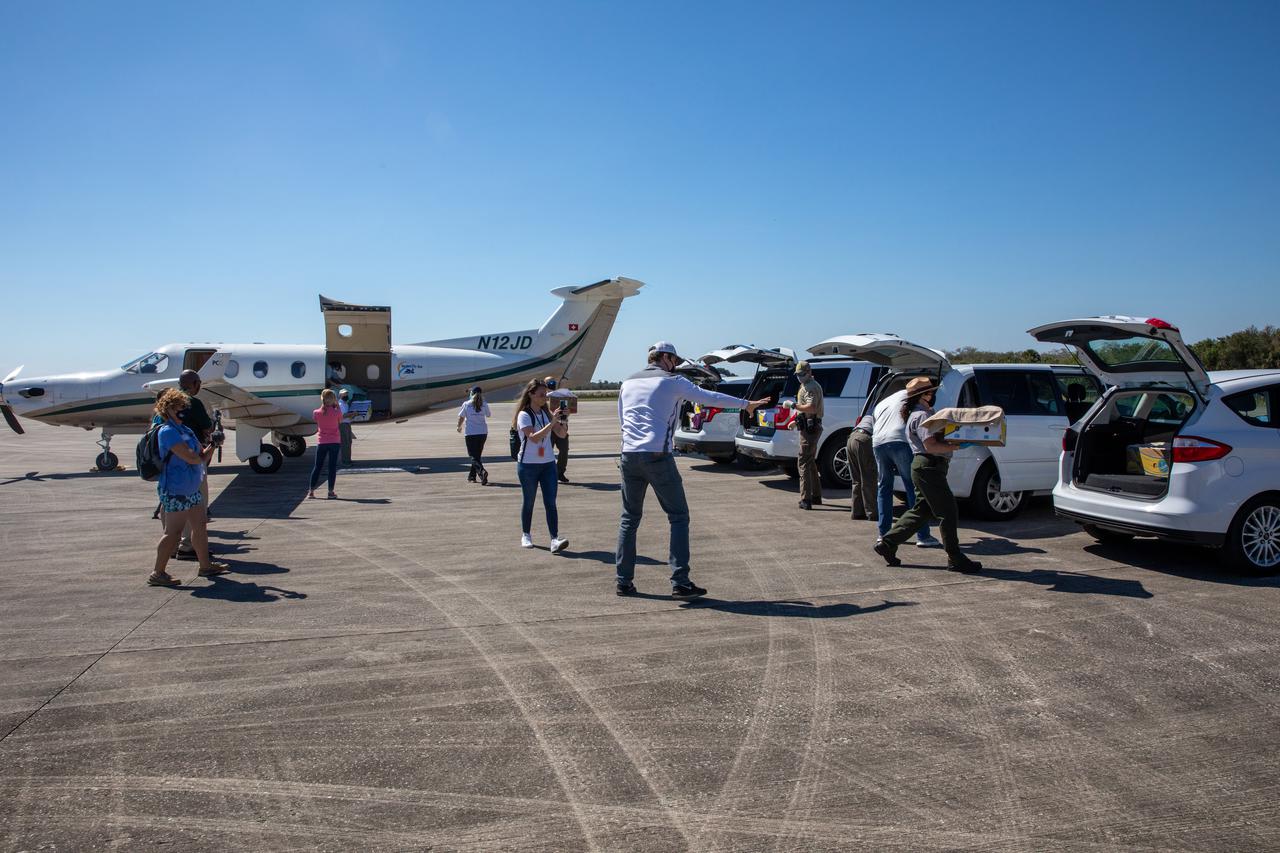
An unusual group of travelers arrived at NASA’s Kennedy Space Center in Florida on Feb. 26. A total of 36 juvenile Kemp’s ridley sea turtles, along with one Loggerhead/Kemp’s ridley hybrid turtle, were transported to Kennedy aboard a PC12 aircraft from rehabilitation facilities in Massachusetts and New York. The turtles were carefully offloaded, packed into vehicles, driven to nearby Canaveral National Seashore and released into the Atlantic Ocean.
Multiple agencies and facilities quickly came together to form a cooperative partnership, and NASA expanded on its environmental support to the community.
The turtles were flown to the center by Turtles Fly Too, a company that provides air transportation when endangered species are threatened, either through a cold stun event, entanglement, or when an endangered animal is injured. Using Space Florida’s Launch and Landing Facility at Kennedy allowed for quick access to a nearby release site. General aviation pilots donated their expertise, aircraft, fuel, and labor to provide air transportation to shorten travel time and reduce stress on these endangered species.
Nicholas Murdock, chief of the Environmental Management Branch in Kennedy’s Spaceport Integration and Services, helped to coordinate the rescue and release efforts.
“How quickly and efficiently this opportunity has come together really highlights the great relationships that we have with our partnering agencies,” Murdock said. “Our environmental missions align closely, and it allows us to cooperate so effectively. We all collectively have a mission of protecting and conserving our unique and wonderful natural environment.”
The Kemp’s ridley turtles were about two to three years old, and each measured about 18 inches in length. They were ready for release, but the waters off the coast of the northeast were too cold for them to survive, so efforts came together to release them off the coast of the Florida spaceport.
“The Canaveral National Seashore is an ideal location for release of young Kemp’s ridley turtles due to its location within the southern end of their natural range, proximity to the warm waters of the Gulf Stream, and protected natural areas,” said Laura Henning, chief of interpretation with the Canaveral National Seashore (CNS).
Kristen Kneifl, with CNS, and Jane Provancha, with Herndon Solutions Group, the center’s environmental and medical services contractor, are sea turtle permit holders. They, and other staff they have trained, gently removed the turtles from their containers, walked into waist high water, and released them, one by one, into the ocean. They observed the turtles as they moved in the water to confirm they were healthy, and watched them swim away.
Kemp’s ridleys are the smallest, rarest, and the world’s most endangered species of sea turtle. They grow to about two feet in length, and have an average lifespan of 50 years. They are found mostly in the Gulf Coast of Mexico and the United States, and the Atlantic coast of North America. Some have been found as far north as Nova Scotia and Newfoundland.
The Canaveral National Seashore is part of Kennedy Space Center and the Merritt Island National Wildlife Refuge. NASA acquired about 140,000 acres of land in 1962 and has partnerships with state and federal agencies that help care for the native wildlife and seashore. The arrival and release efforts were coordinated by the Florida Fish and Wildlife Conservation Commission (FWCC), National Park Service (Canaveral National Seashore), NOAA Fisheries, U.S. Fish and Wildlife Service (Merritt Island National Wildlife Refuge), Space Florida, manager of the Launch and Landing Facility, and Herndon Solutions Group.
Watch a video of the sea turtles’ arrival and release. All marine turtle footage and images were obtained with the approval of the Florida Fish and Wildlife Conservation Commission (FWC) under conditions not harmful to marine turtles. Footage was acquired while conducting authorized conservation activities pursuant to FWC 2021 Consent Permit, MTP-21-005 and MTP-21-114.





